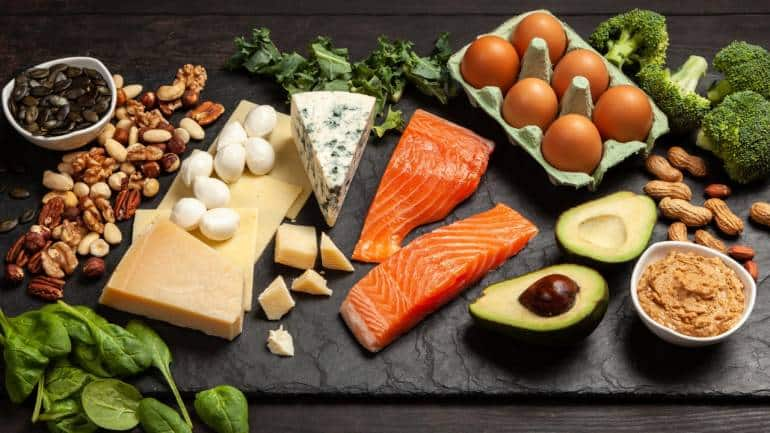
HEALTH BENEFITS OF KETO DIET: IT'S GOOD TO LOSE WEIGHT, BUT WATCH OUT FOR CALORIE DEPLETION, BAD FATS
When it comes to weight loss, the keto diet is among the most popular routines to lose weight the healthy way. Originally devised for children with epilepsy in the 1920s, the keto diet is all about eating low carbs and high fat. When you eat this way, your body goes into a state called "ketosis," where it burns fat for energy instead of carbs.
But, like any diet, the keto diet has good and bad sides you should know about before trying it. It involves a significant shift in macronutrient intake, with the daily breakdown as follows:
- 5 percent of calories from carbohydrates: This includes low-carb, non-starchy vegetables and small amounts of leafy greens. Foods such as grains, beans, fruits, and starchy vegetables are excluded, says nutrionist Payal Shrivastava.
- 20% of calories from protein: Sources may include meat, eggs, and cheese.
- 75% of calories from fat: This category includes oils, unprocessed nuts, butter, and avocado.
This drastic reduction in carbohydrateintake forces the body to switch from using glucose for energy to burning fatty acids or ketones. It typically takes about three weeks of carbohydrate elimination for the body to enter a state of ketosis.
Pros of the Keto Diet
Weight loss: A keto diet will make you feel less hungry than when you are on other restricted diets. This decreased appetite could be attributed to the satiating effects of fatty foods, which take longer to break down in the body, says Shrivastava.
No more low-fat: The appeal of the keto diet lies in the ability to consume satisfying high-fat foods while still losing weight. For those who enjoy foods like red meats, fatty fish, nuts, cheese, and butter, the keto diet offers a way to indulge in these items without guilt.
Health benefits for specific populations
In addition to weight loss, the keto diet has shown benefits for certain populations. It has long been used to reduce seizures in pediatric patients with epilepsy. Endurance athletes and bodybuilders also use it to reduce body fat quickly. While more research is needed, the diet is being studied for its potential in mitigating symptoms of progressive neurological disorders like Parkinson's disease.
Cons of the Keto diet
Difficult to sustain: One of the primary challenges of the keto diet is its stringent food restrictions, making it challenging for many individuals to adhere to long term. The diet can lead to yo-yo dieting, which may increase mortality risk, says Shrivastava.
Calorie depletion and nutrient deficiency: Due to its restrictive nature, the keto diet may lead to calorie depletion and nutrient deficiencies. By eliminating fruits, legumes, vegetables, and whole grains, individuals may miss out on essential vitamins, minerals, and fibre. This deficiency can result in feelings of fatigue, fogginess, and constipation, often referred to as "keto flu."
Bad fats and heart health: While the diet encourages the consumption of fats, particularly saturated fats, it may have negative impacts on heart health. The American Heart Association recommends limiting saturated fat intake to 5-6 percent of daily calories. High intake of saturated fats can increase the risk of cardiovascular diseases by raising lipid levels in the blood.
Renal risk: Individuals with kidney disease may face an increased risk of requiring dialysis on the keto diet due to the additional ketones their renal system must process. Additionally, some people experience dehydration as the diet depletes glycogen stores, which hold water in the bloodstream.
2024-04-08T07:01:53Z dg43tfdfdgfd